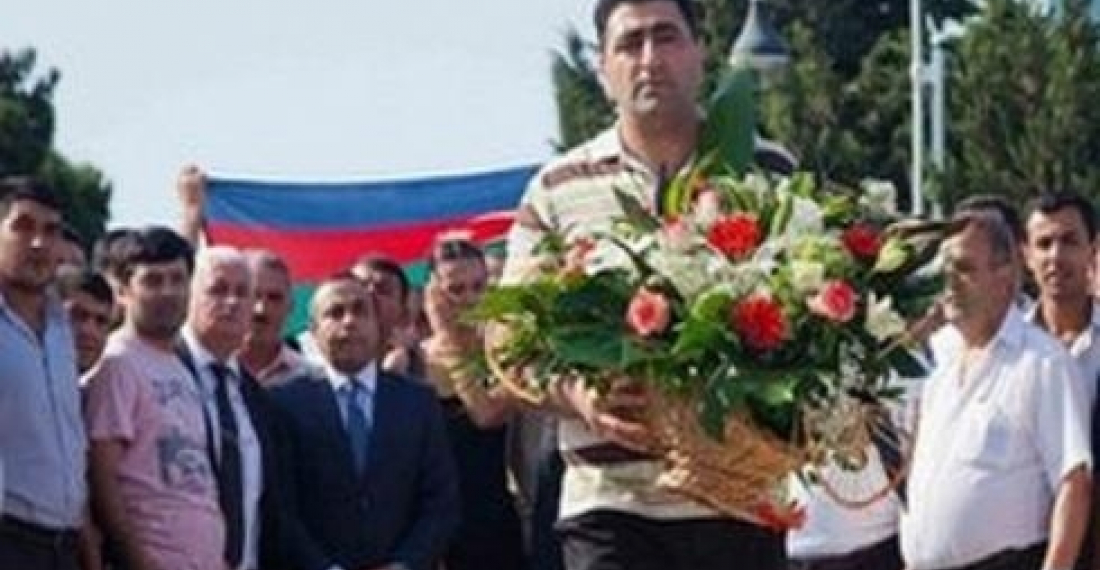Ramil Safarov, the Azerbaijani military officer who in 2004 hacked to death an Armenian officer in his sleep whilst both were attending a NATO course in Hungary is now a free man. On Friday he was sent back to Azerbaijan by the Hungarian authorities.
Safarov was found guilty and sentenced to life imprisonment by a Hungarian Court. The Hungarian government this week agreed to send him back to continue finishing his sentence in Azerbaijan. On arrival back in Baku he was pardoned by President Ilham Aliev and released.
Commonspace political editor made the following comment:
"This is the latest chapter in a drama that has stirred many emotional problems in both Armenia and Azerbaijan. In Armenia Safarov's action re-enforced images of Armenian suffering at the hands of Turkic people. When the murder took place in 2004 emotions in Armenia ran high and the President at the time, Robert Kocharian, famously said that it shows that Armenians and Azerbaijanis were genetically different.
In Azerbaijan however the murder was seen as a heroic act, part of the process of retribution against the humiliation that Azerbaijan suffered at the hands of Armenia in the war over Nagorno-Karabakh, and the subsequent loss of territory.
The incident took both governments by surprise and for a moment at the time it seemed as if the leaderships in Baku and Yerevan had lost control of the situation and were simply reacting to popular emotions.
The situation now is quite different. The decision to release Safarov immediately on his arrival in Baku was a decision taken by the Azerbaijani President. The President is being credited for masterminding the release of Safarov and for persuading the Hungarian leadership to sent him back. The decision is very popular in Azerbaijan and the President is seen as a hero for his actions. Azerbaijnai government officials are reminding people that the fact that Hungary agreed to send Safarov to Baku is an example of the high regard and influence of Azerbaijani Foreign policy
Hungary says that it had assurances from the Azerbaijani government that he would serve the rest of his sentence in an Azerbaijani jail, but that in the end once he was sent back he became the responsability of the Azerbaijani legal system.
Armenia is blaming the Hungarian government and has broken off diplomatic relations. There will be immense pressure now on President Serz Sargsyan to do more. Sargsyan is facing elections in less than six months time. This could not have come at a worse time for him and he will need to be seen acting toughly in this or otherwise he is politically doomed.
The release of Safarov will have implications on the region, on Armenian-Azerbaijani relations, on the politics of the two countries and on their international relations."
source: commonspace.eu
photo: A hero's welcome for Safarov in Baku (picture courtesyu of the BBC).







